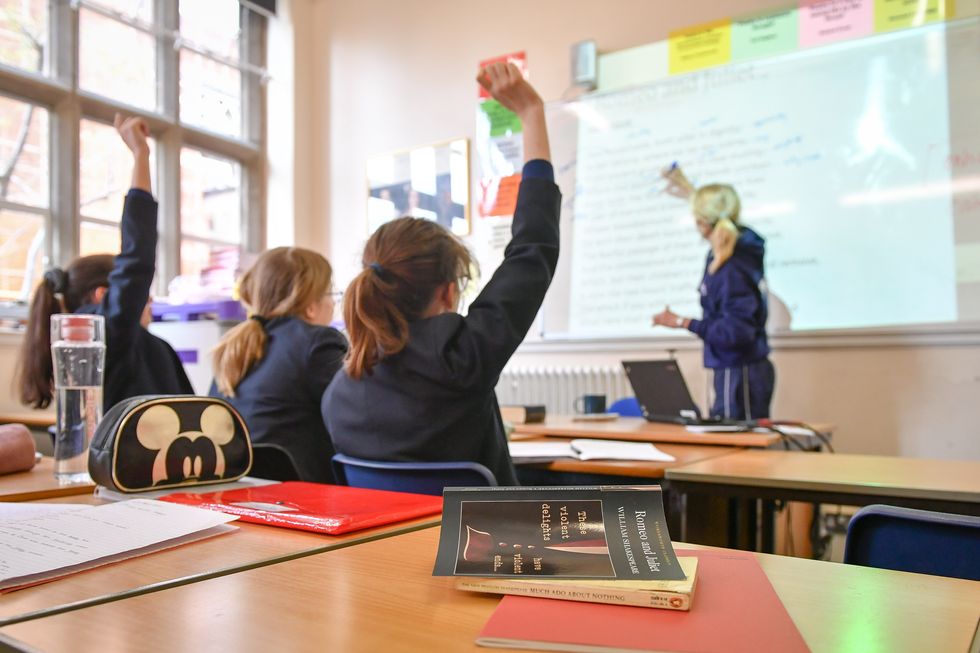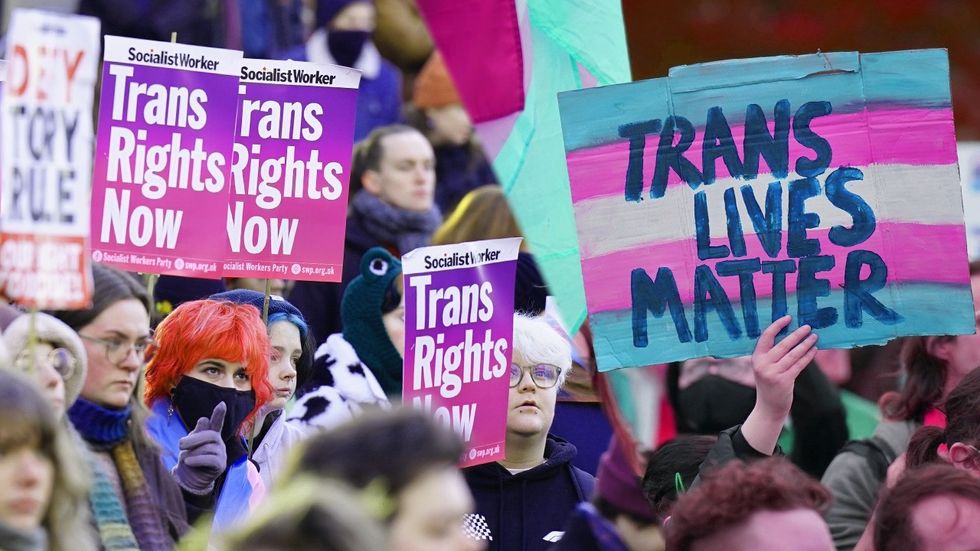A pupil in a British school has been punished for questioning the use of non-binary pronouns for their teacher, a concerned parent has claimed, in what appears to be the first case of its type in the UK.
A battle which has ensued between the ‘inclusive’ school and the concerned parent means a young pupil’s educational future is up in the air, with documents seen by GB News stating directly to the parent that teachers’ chosen pronouns must be ‘respected’ by students as young as eleven.
In yet another instance of the ideological clash between woke gender politics and more traditional views of sex and gender that has swept the media, public sector and corporate world, but had previously been confined to adults, identity politics now demands the compliance of children.
Upon the return to school this September, the child of the outraged parent found themselves in class with a teacher presenting as female. Weeks into the school year, the concerned parent stated it had not yet been made clear to the students that this teacher would prefer to be addressed as ‘Mx’ rather than the standard ‘Miss’.
The parent claims the conflict began when the pupil, who is in Year 9, addressed the female teacher as ‘Miss’, to which the pupil claims the teacher retorted: “I’m not Miss, I’m Mx”.
In response, the confused child allegedly asked: “Well, what does that mean?”
The child was then issued a detention for being rude to their teacher, according to the parent who refutes the punishment, countering that the kid largely stays out of trouble, has always had good feedback and is “not a bad child”.

(Stock photo) A pupil raises their hand in a classroom
PA
The pupil returned home and recounted the story to their parent who told GB News of their shock: “What is Mx? I’ve never heard of it. I feel like this teacher doesn’t know who she is, bringing their issues to the kids. I’ve never had any problems with the school before this!”
‘Mx’, pronounced ‘mix’ is a pronoun often used by the trans and non-binary communities to avoid the use of gendered honorifics such as ‘Mr’ or ‘Mrs’.
The parent says the school has disputed the claim that the detention was related to the child’s use of ‘Miss’ rather than ‘Mx’ to address the teacher, however, communications seen by GB News show the underlying issue has been the use of chosen pronouns.
The People’s Channel has seen messages from multiple parents at the same school corroborating the concerned parent’s sequence of events. Many of these parents’ own children, they claim, have been given punishments such as detentions for addressing the teacher as ‘Miss’ rather than ‘Mx’.
LATEST DEVELOPMENTS:
GB News has been unable to ascertain whether any classes were given to children beforehand to explain the meaning of the ‘Mx’ pronoun or the existence of non-binary identities before demanding adherence to them and was unable to find the school’s gender policies on its website.
“There have been assemblies about being kind to those who are different, but nothing like that. We had no idea of this policy”, said the parent.
The deeper issue for the parent is that they hold more traditional views of sex and gender, namely in the existence of two genders: male and female and therefore declines to subscribe to gender ideology. “Where does that leave us as parents? I don’t want to teach my child that!”, they said.
The parent is adamant that their child will not use non-binary honorifics, saying: “The school told me I have to move with the times but what happened to knowing who you are? She doesn’t know who she is.
“They’re saying this is their policy and we have to respect what the teacher wants, but I don’t want to teach my child that.”

LGBTQ flag
PA
The parent confirmed the pupil has been allowed back into their lessons with the teacher but has been told to address them as ‘Mx’: “I told them no, that is not happening”.
To overcome the stalemate, the parent says the school suggested a workaround: the pupil may raise their hand silently to address the teacher, thus avoiding the use of gender.
Feeling uneasy at this prospect, the parent sighed: “[My child] is really anxious, they think they’re going to be bullied.”
Now resolute the parent said: “[My child] is not going back in that class. I regret sending them to that school. I feel like I’ve let them down.”
While schools’ policies towards trans-identified children and sex education have come in for criticism these past years, the focus of the controversial education has usually been fixed on the feelings and identities of other children. In this instance, it appears the child’s transgression was questioning the identity of a teacher, whose own welfare appears to have been deemed paramount – rather than the confusion or views of the child. This is the first known case of its type to be reported in the UK.

Guidance issued under the Conservative Government last year states specifically that the use of preferred pronouns must be voluntary, stating in the press release: ‘Schools and colleges should not compel teachers or pupils to use new pronouns’
PA
Guidance issued under the Conservative Government last year states specifically that the use of preferred pronouns must be voluntary, stating in the press release: “Schools and colleges should not compel teachers or pupils to use new pronouns”.
Since its release, there have been numerous reports of schools flouting the guidance, with the National Education Union (NEU) telling members it was “non-statutory”.
The guidance remains non-binding and although schools have been told to adhere, there is no way to compel them to.
It is unclear whether Labour will keep the previous Government’s guidance or replace it. Before the election, now Education Secretary Bridget Phillipson told the BBC it contained some “good and straightforward principles” but suggested Labour would later review it.
The school in this case told GB News in a statement: “[Ours] is an inclusive school which represents and works with a diverse group of local families and staff.
“The school works with everyone in the community to encourage tolerance and respect regarding their views, lifestyles and beliefs, and heritage and backgrounds.
“This fundamental principle is at the heart of the school and sits at the centre of what we all understand about British Values.
“The Executive Principal has spoken this year to all students about celebrating the differences we see around the school, but also to reach out to identify what we hold in common with one another.
“These similarities help build a cohesive community based upon the school’s core values of kindness and trust.
“Whilst we do not comment on individual cases, we are always willing to engage with and listen to any member of our community to ensure that their voice is heard.”